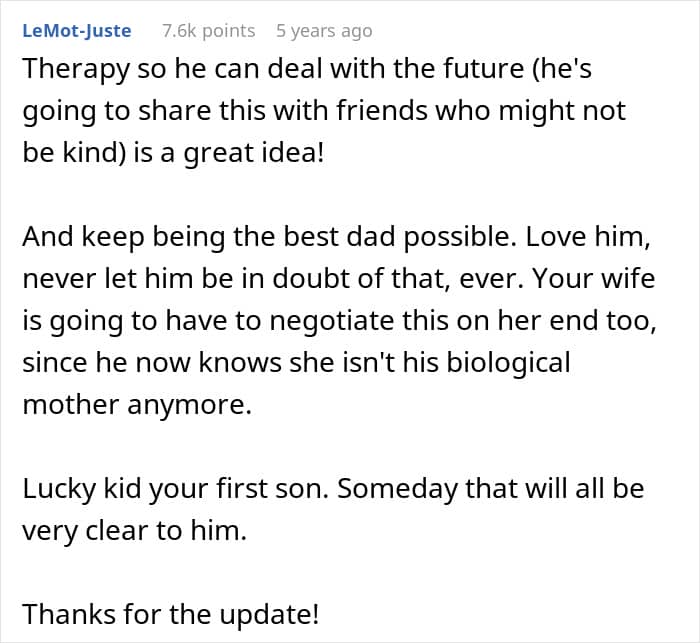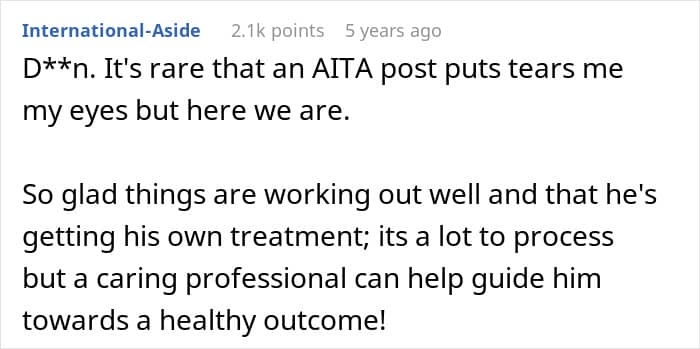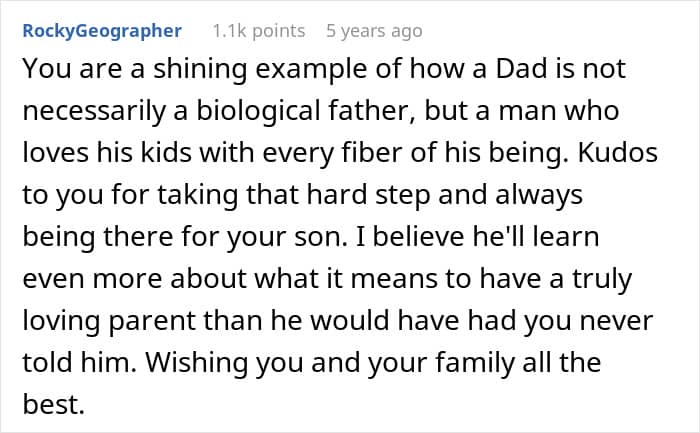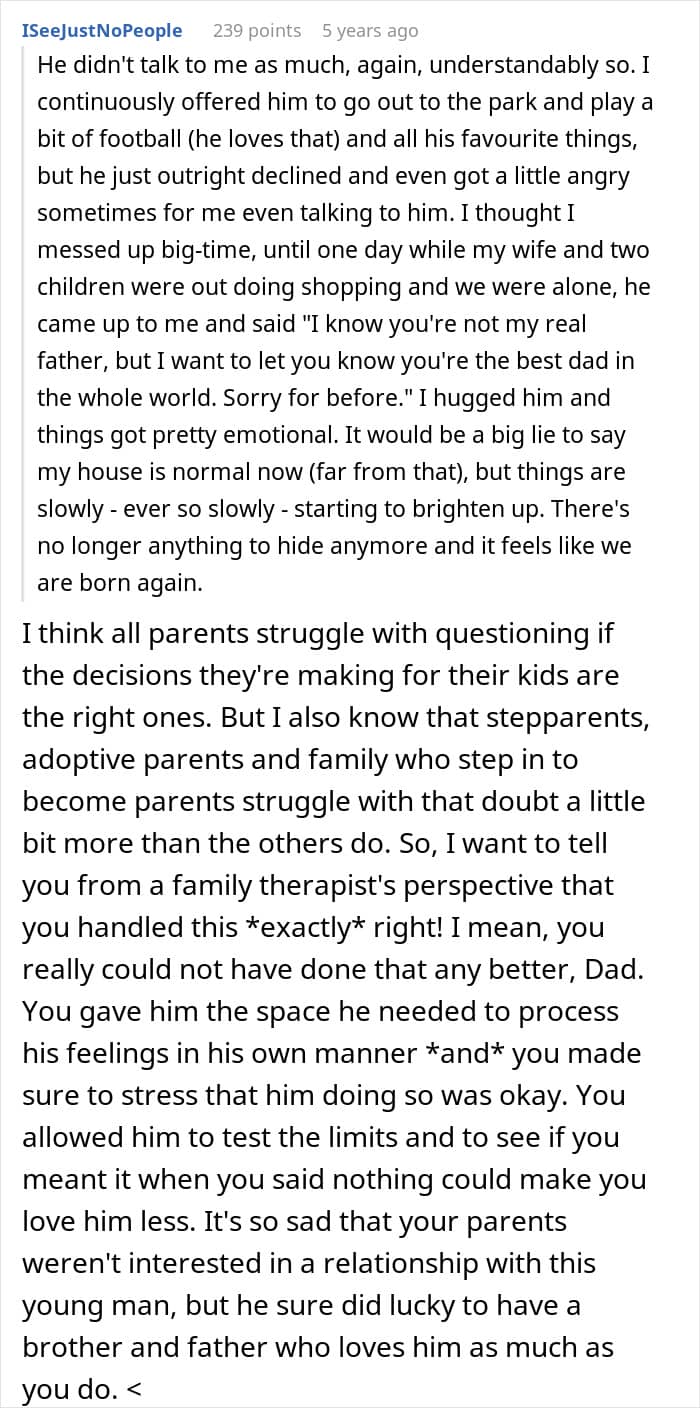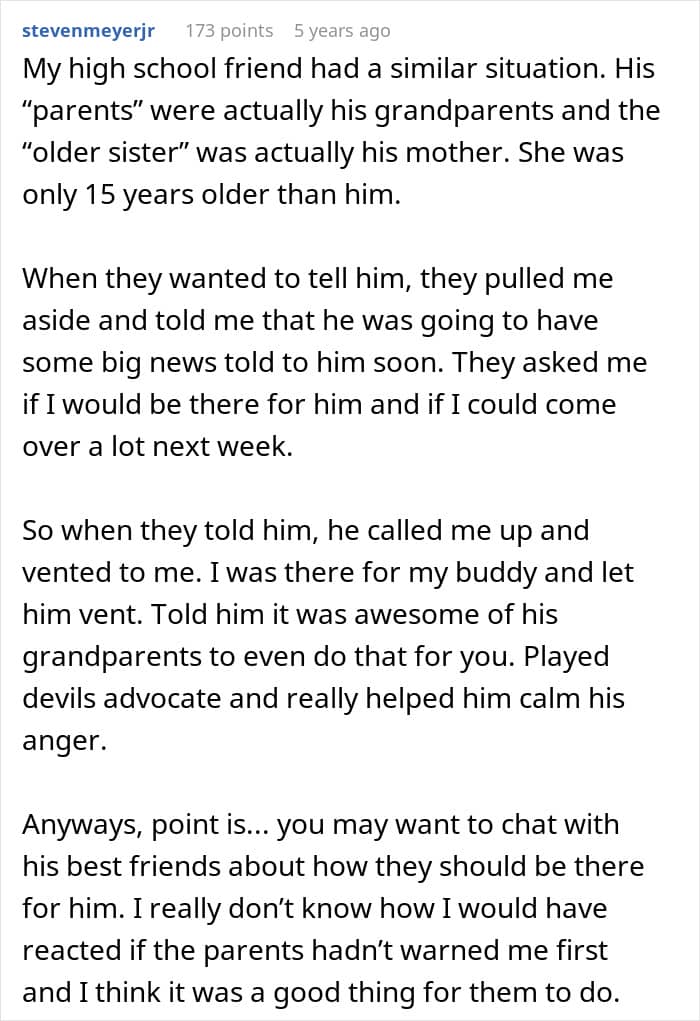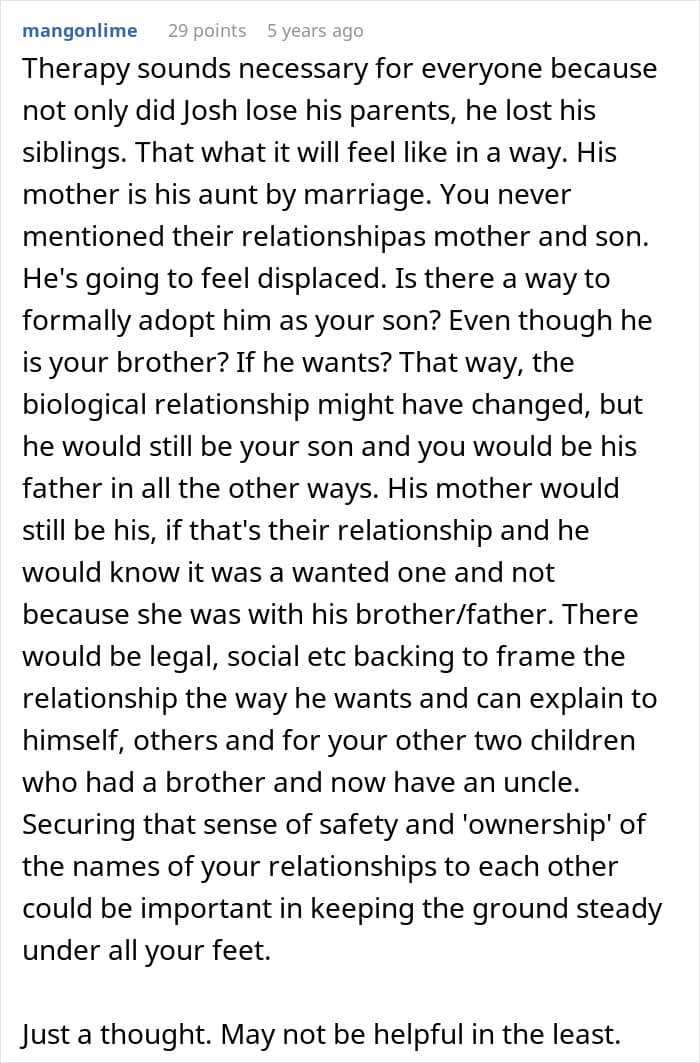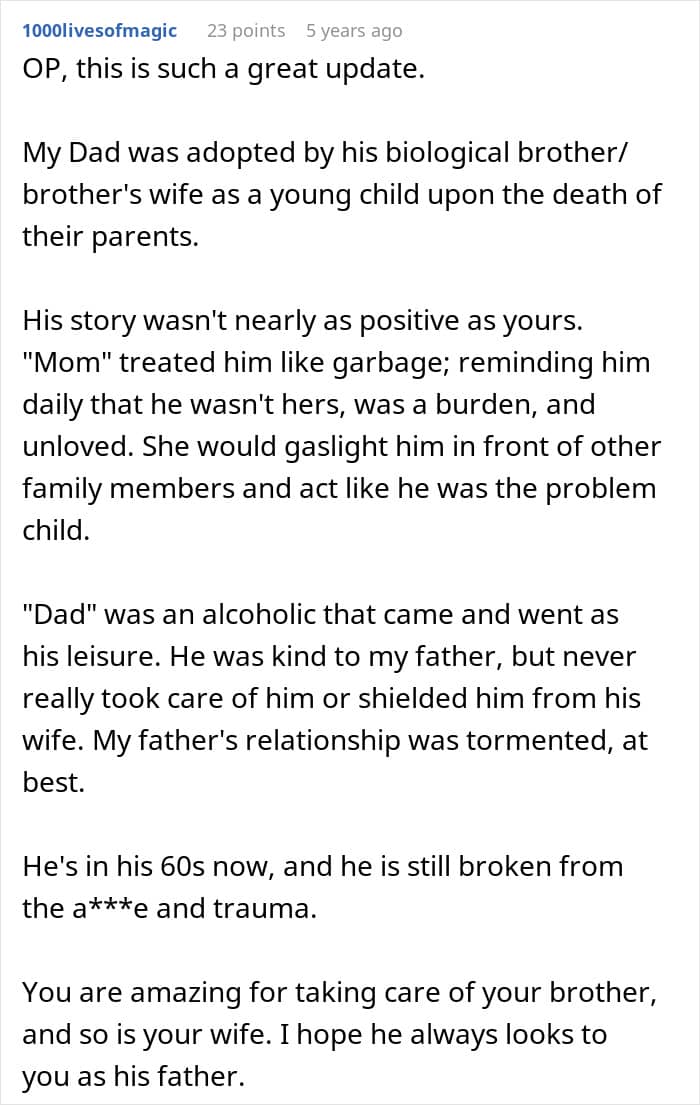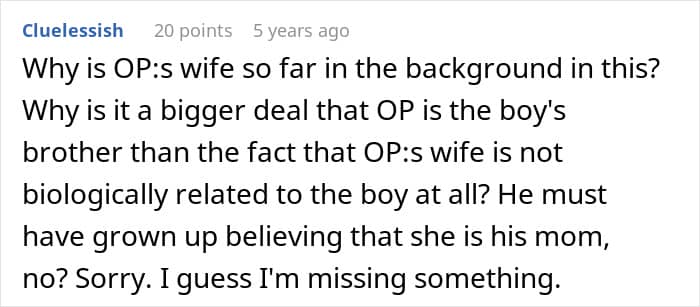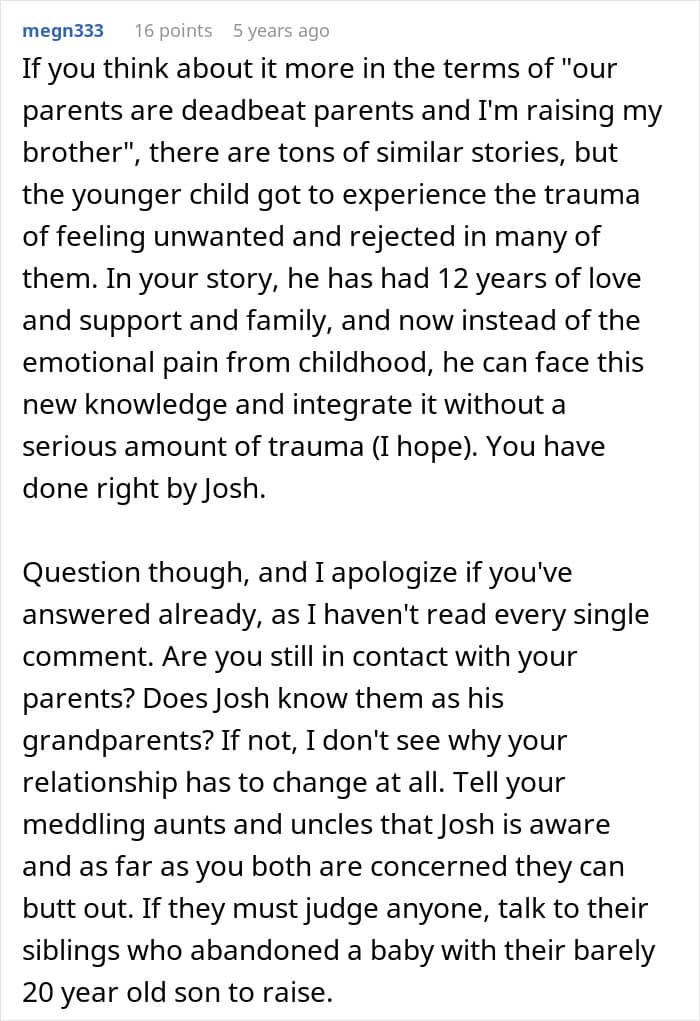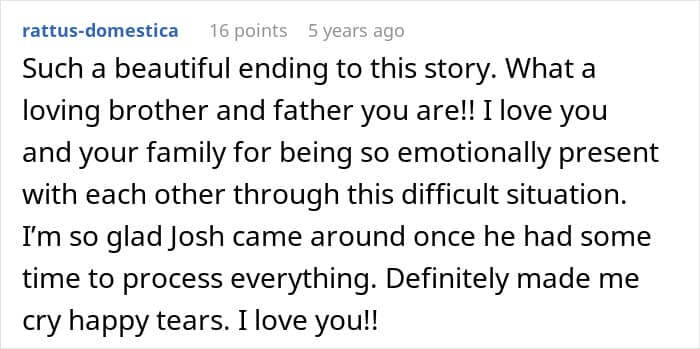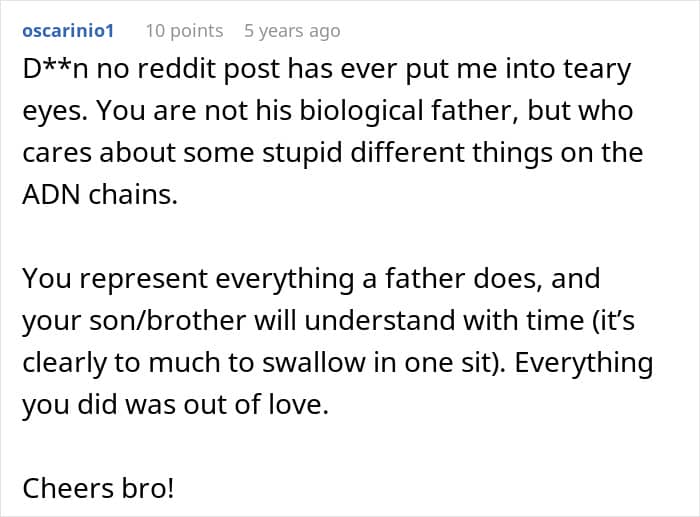Raising a child as a young adult is a pretty harrowing task that, arguably, most 20 year old’s are not equipped for, but it doesn’t mean that one shouldn’t try if that’s the hand that fate dealt them. A man asked the internet if he was wrong to never reveal to his kid brother that he wasn’t actually his father.
As it turns out, the man’s parents didn’t want anything to do with their newborn, so he decided to take him in and raise him as a father together with his girlfriend. Now his relatives are constantly pressuring him to reveal the truth. Later, he shared a few updates on how he decided to proceed.
RELATED:Talking with kids about difficult subjects can often be tricky

So one man asked the internet how to handle telling his brother, who he raised, that he’s not his dad
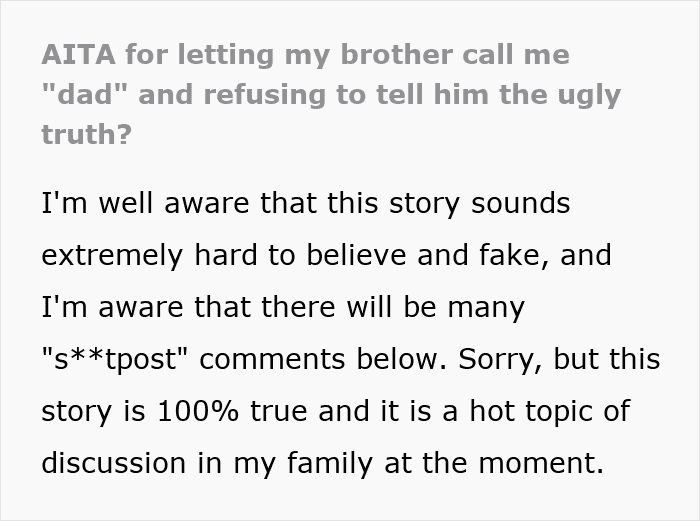
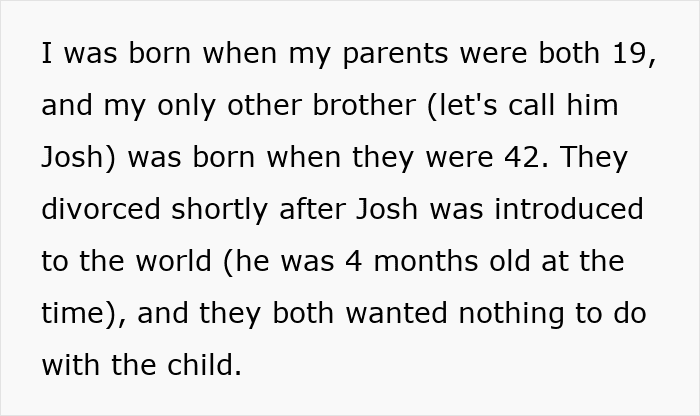
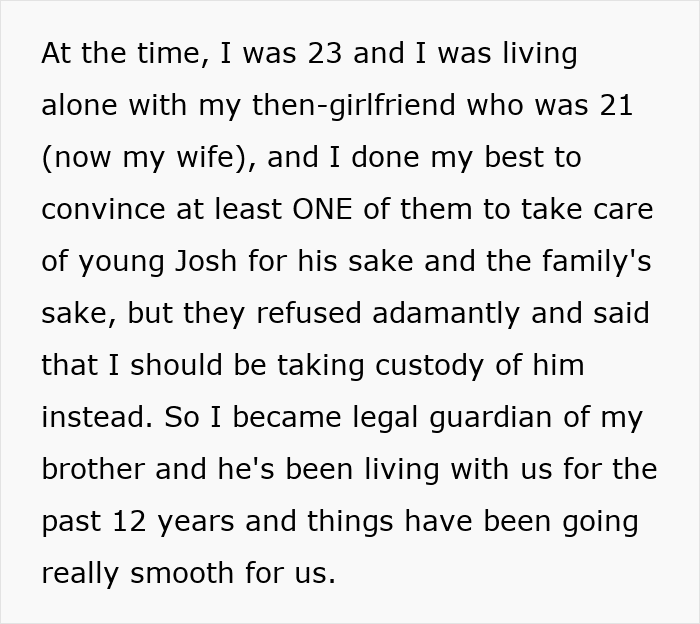
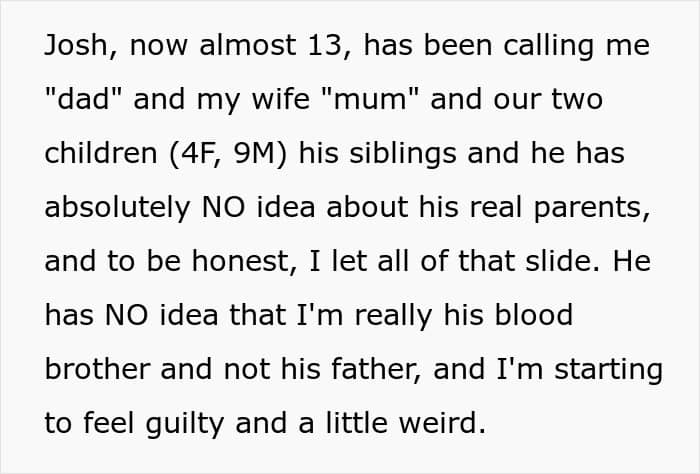
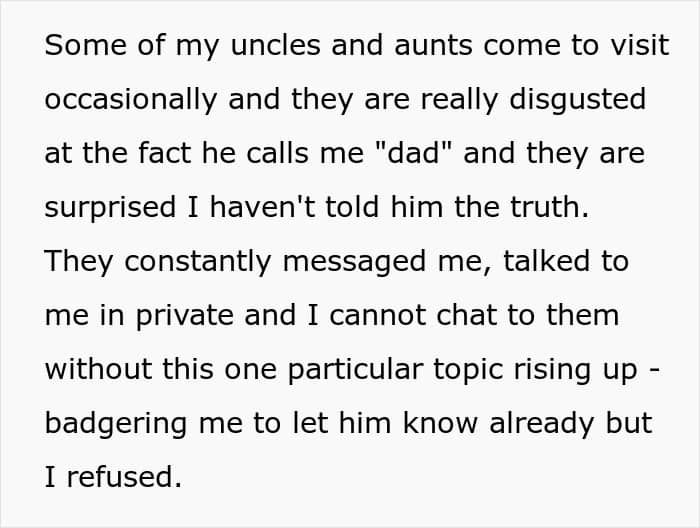

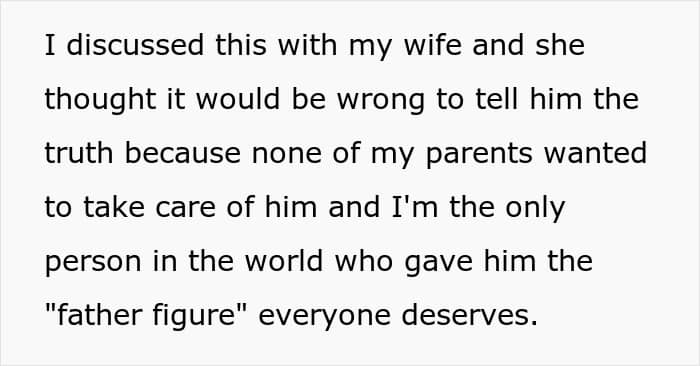
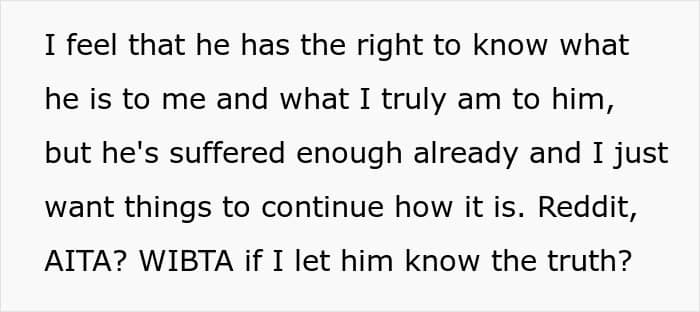
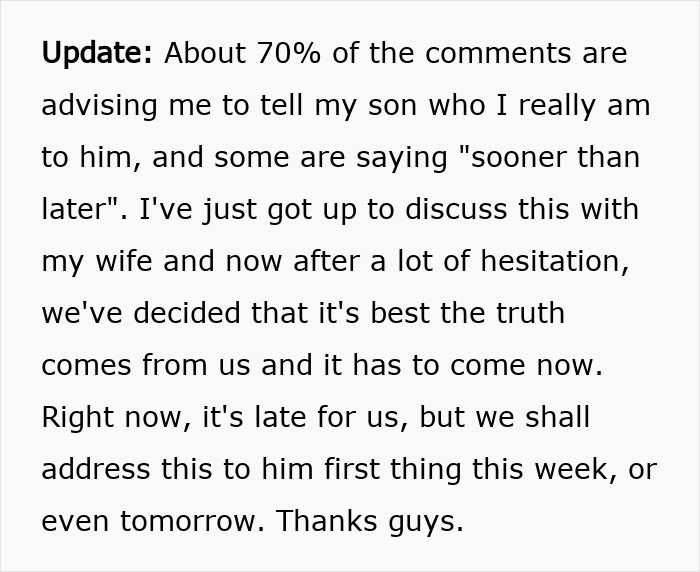
Children have a right to know where they are from
Telling a child that they are adopted is one of the most important things adoptive parents will ever tell them, and it should be done with sensitivity. Adoption is not something to be hidden but something to be revealed with care, for it is directly linked to a child’s sense of identity, belonging, and trust. To many children, their family is the unproblematic center of life. To discover that this basis began differently than they believed it had is confusing. How the news is presented will determine not only how they feel about their adoption, but how they feel about themselves and their place in the family.
Unless presented poorly, the news can leave wounds that will take a few years to mend. If a child stumbles upon it inadvertently, by carelessness of words, slip of a relative, or some record found late in life, it will be heard as something shameful that needed to be hidden. The hiding becomes betrayal, and the child will wonder why they were kept in the dark, or if their adoptive parents were afraid of losing their love. This sense of distrust, though, can prove more damaging than the information itself.
Ultimately, most experts suggest that it’s important to tell the child as soon as possible, within reason. Some even go as far as to recommend telling the truth to an infant or toddler, repeating it at times. They are too young to understand, but therein lies this strategy’s advantage. They can absorb the information before absorbing its implications, so when they are old enough to be told more, the revelation isn’t as “shocking.”

Telling the truth is complex, but necessary
Handled with sensitivity, the conversation can solidify parent-child bond. Adoption, if explained candidly and with love, is not a story of rejection but a story of choice. The children must be told that they were wanted, that their entering the family was not a compromise but a deliberate and important decision. Parents can frame the truth at a level that is suitable for their age. When very young, it can be simply a story of how they came to be in the family, but as children get older, they will pose more searching questions about their birth families, origins, or adoption circumstances. Crucially, however, time must be given for these questions to be asked, and no question is met with shame or evasion.
It’s also necessary to remember that adoption is not one big reveal but an ongoing dialogue. The understanding of children deepens as they get older, and what makes sense at age five won’t cut it with the questions they’ll have at age fifteen. One constant is that the parent should not lie. Answers that get an eight year old to stop asking questions will just cause issues later. Returning to the conversation periodically allows them to sort through new feelings and provides a guarantee that the topic matter is available for discussion. This ongoing vulnerability enables adoption to be not one small definitive secret but a regular, accepted part of their life story.
Telling a kid that they are adopted is so much more than providing information. It is about affirming security, love, and trust. Patient and cautious parents can make what might otherwise be a difficult revelation into a story of belonging, one that speaks to the countless ways that families come to be, and the enduring love that makes a family whole.
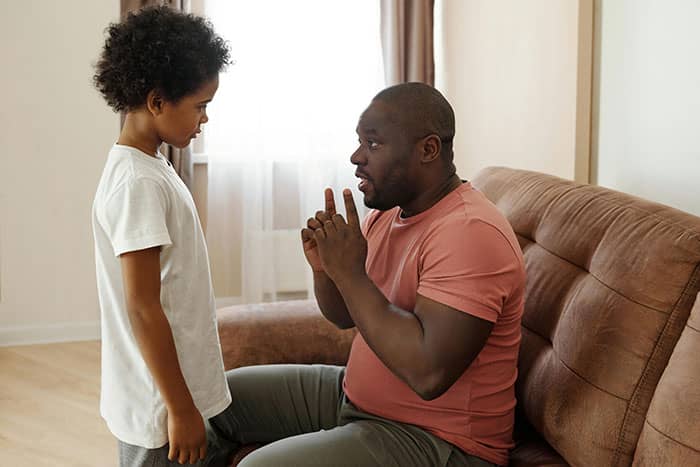
Some readers wanted to hear more
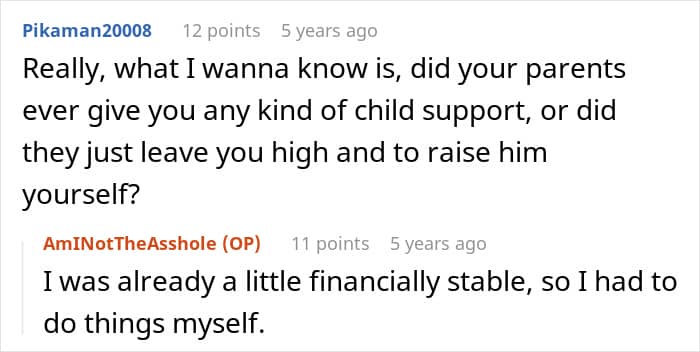
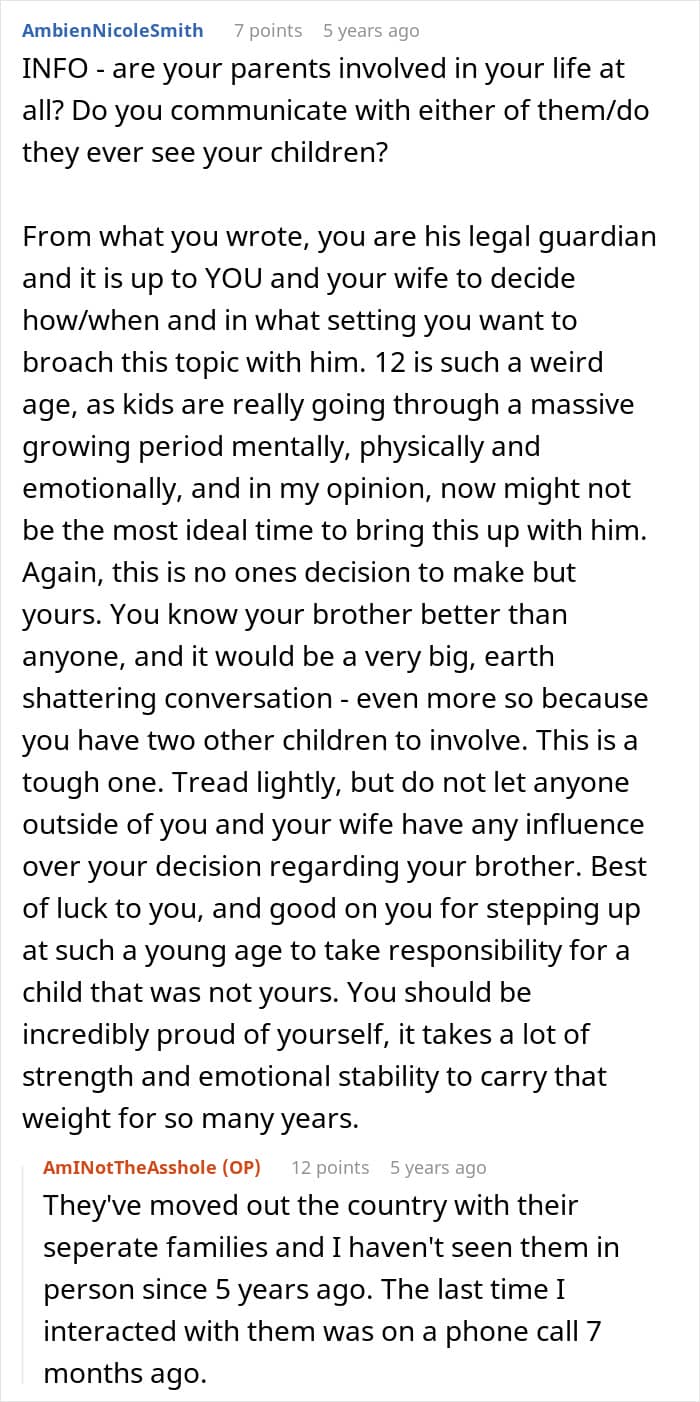
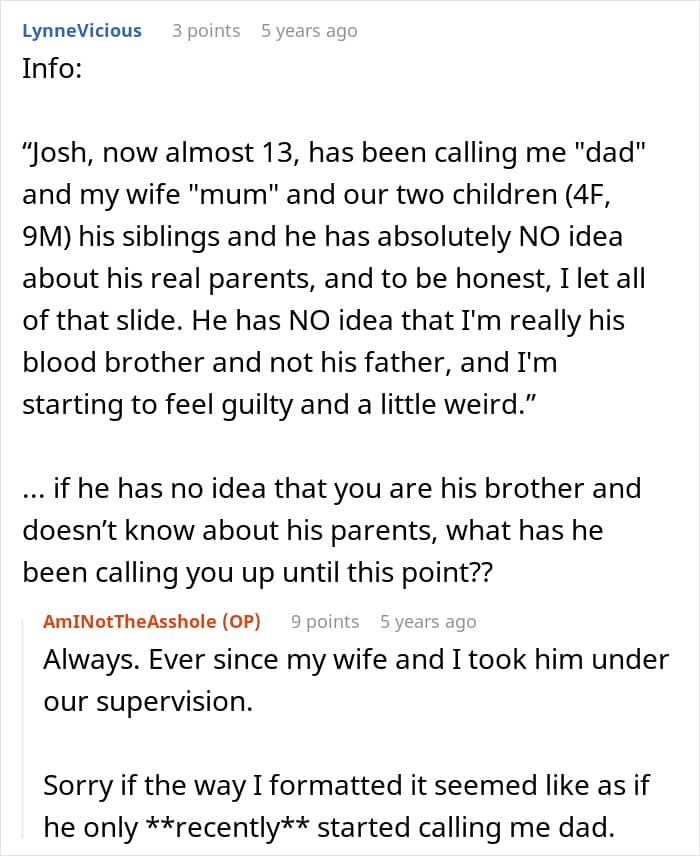
Most thought no one was the villain
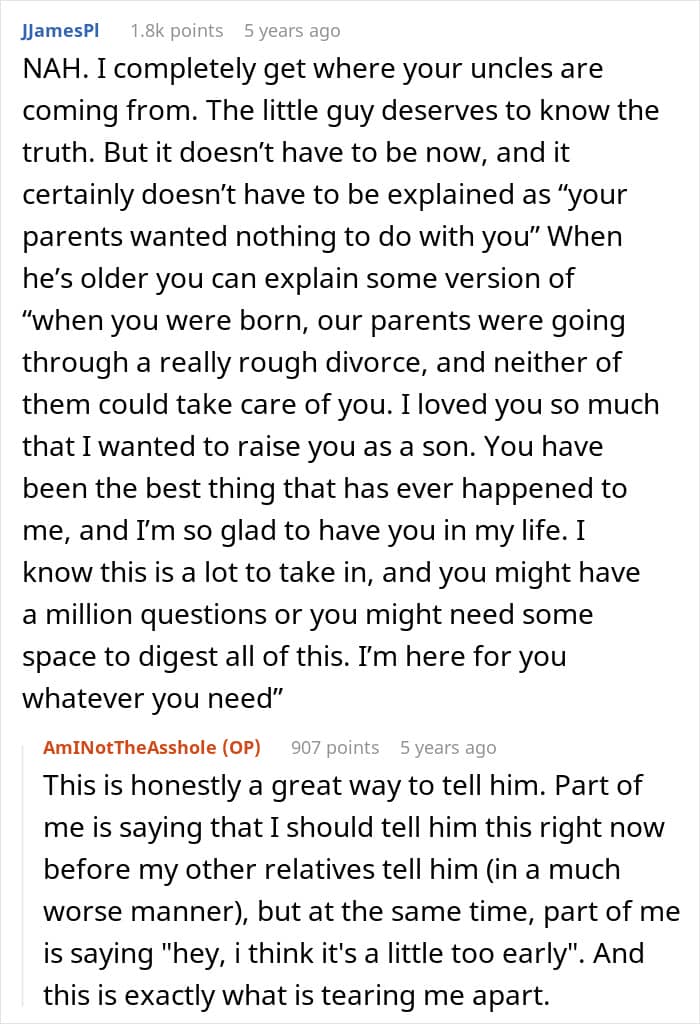
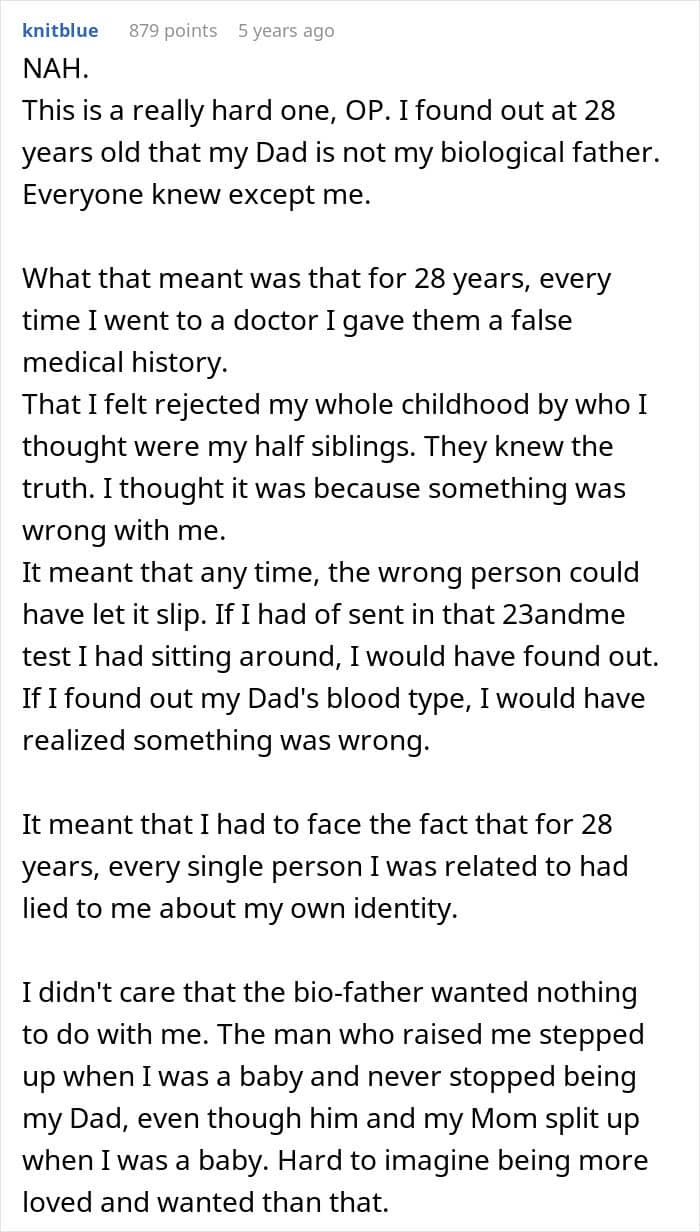
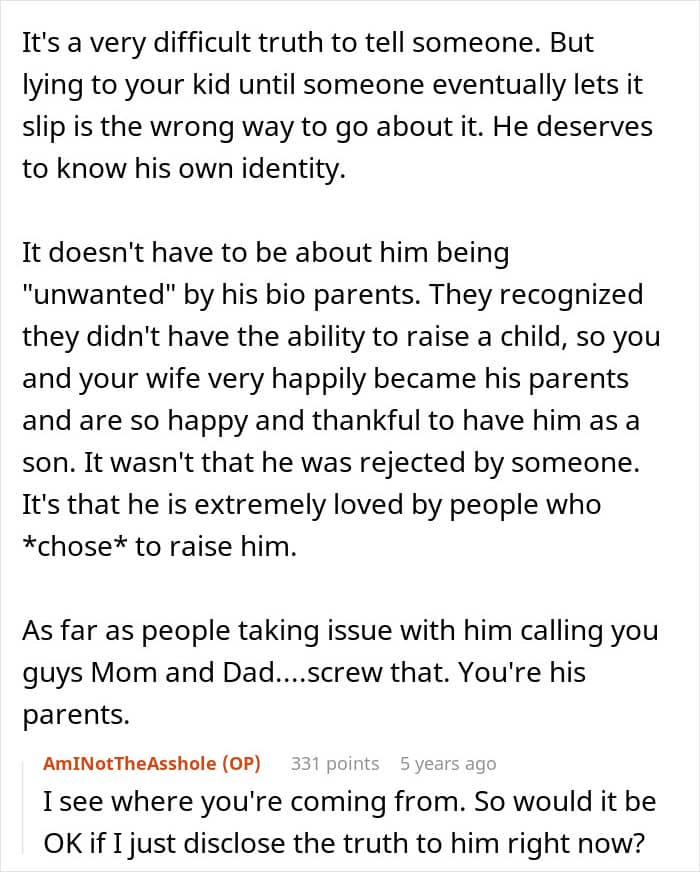
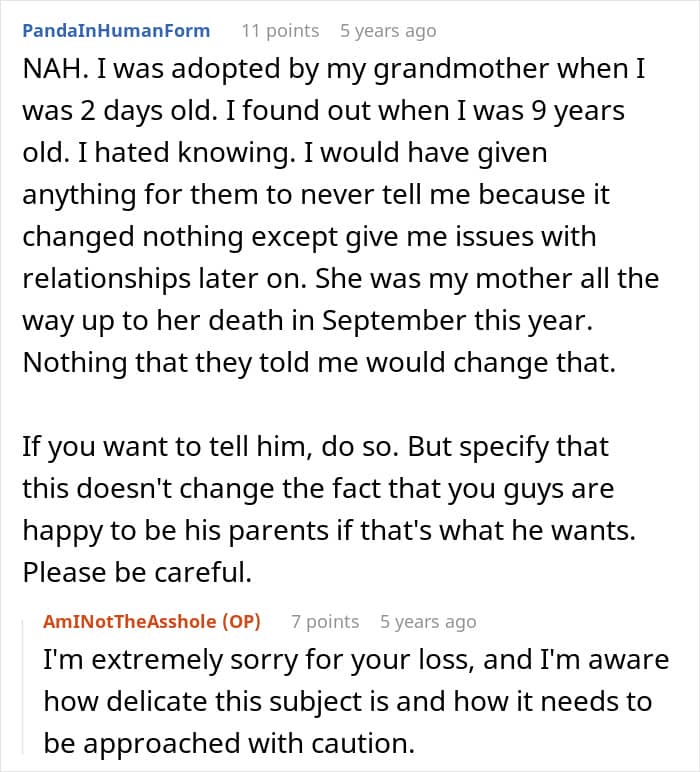
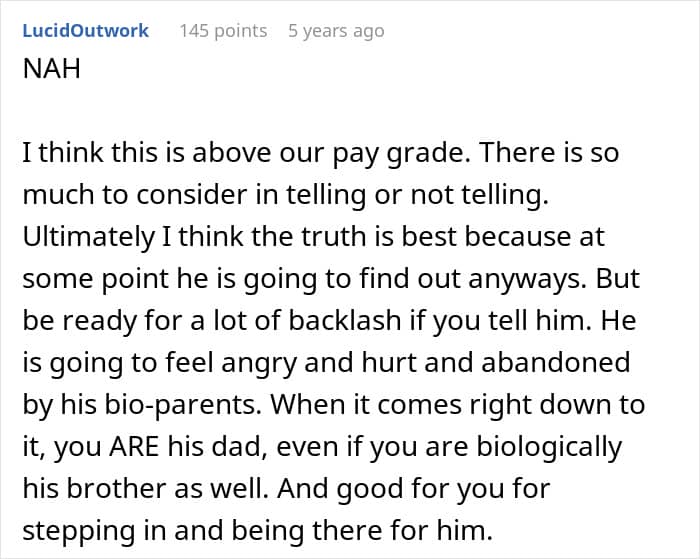


A few also shared similar stories
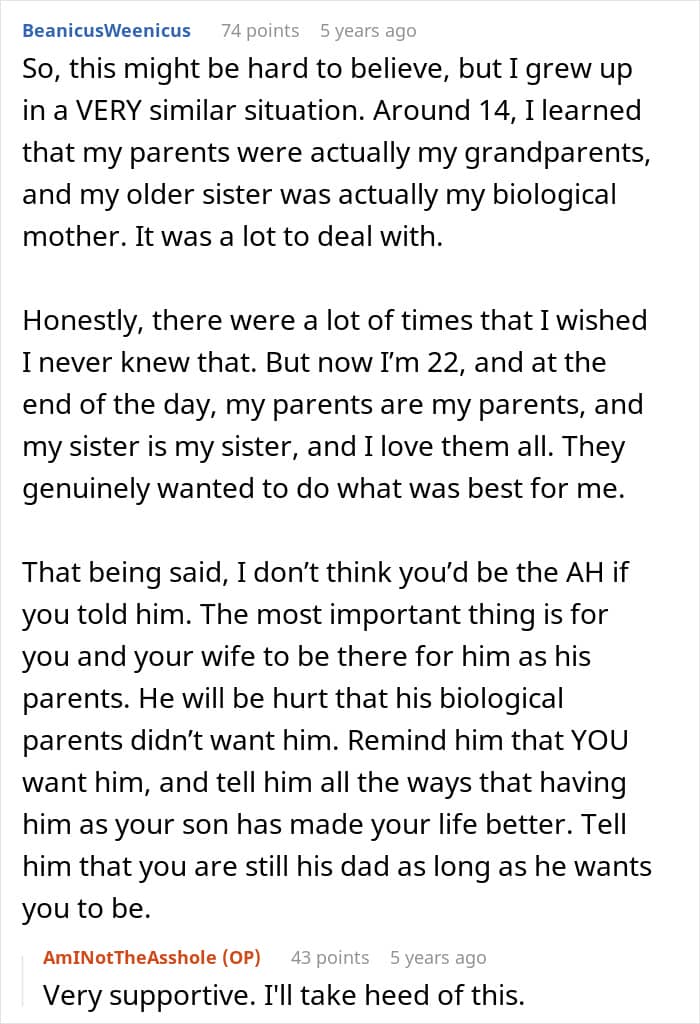
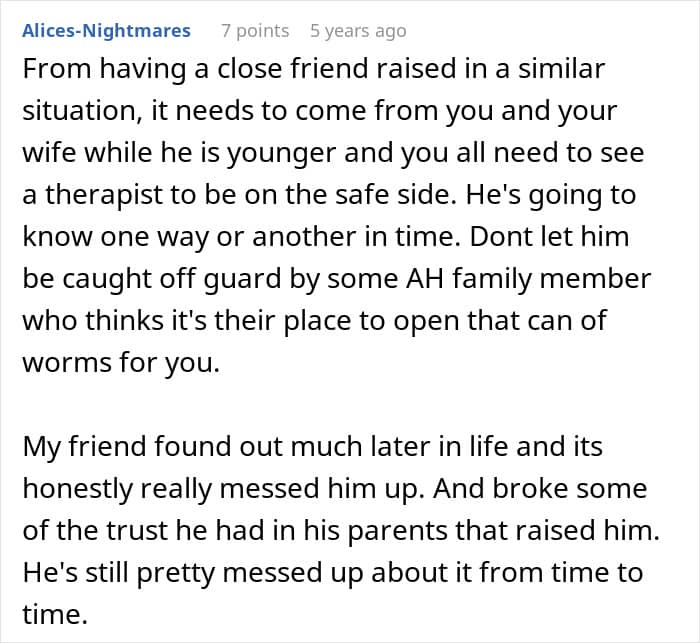
People left their suggestions in the comments
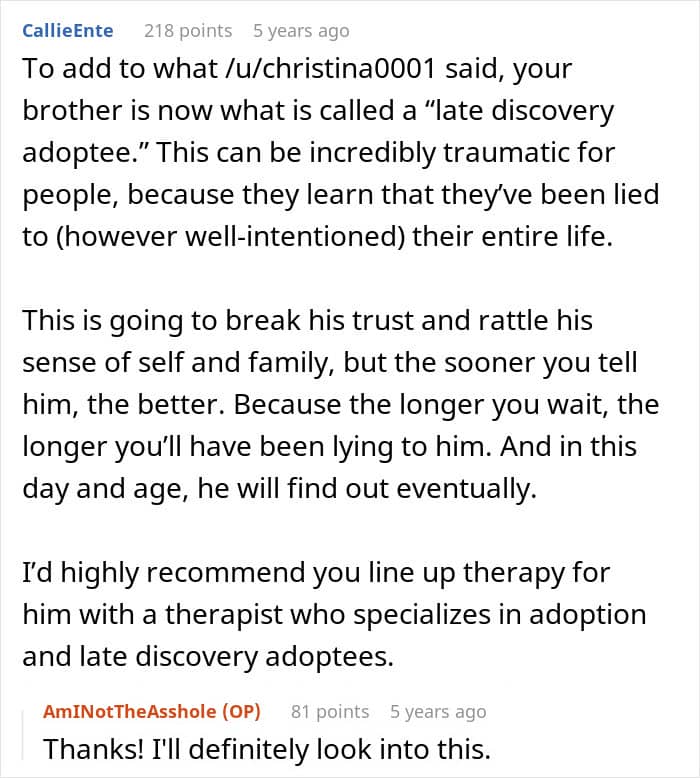
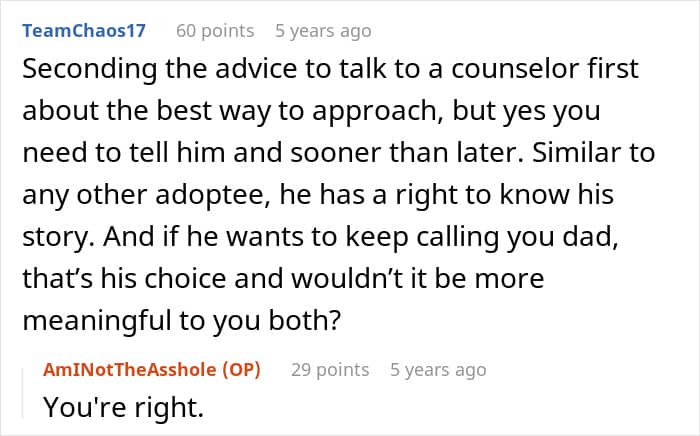

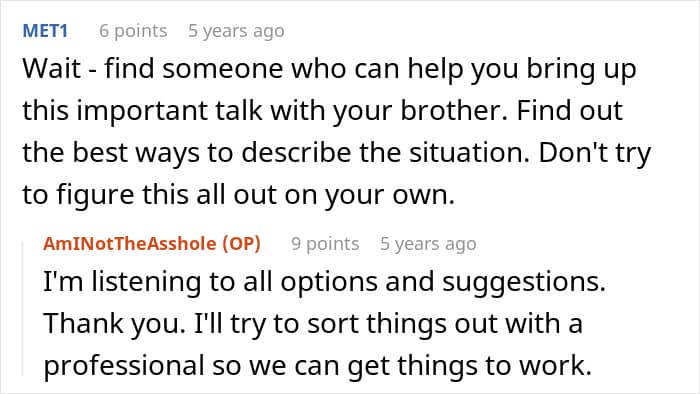
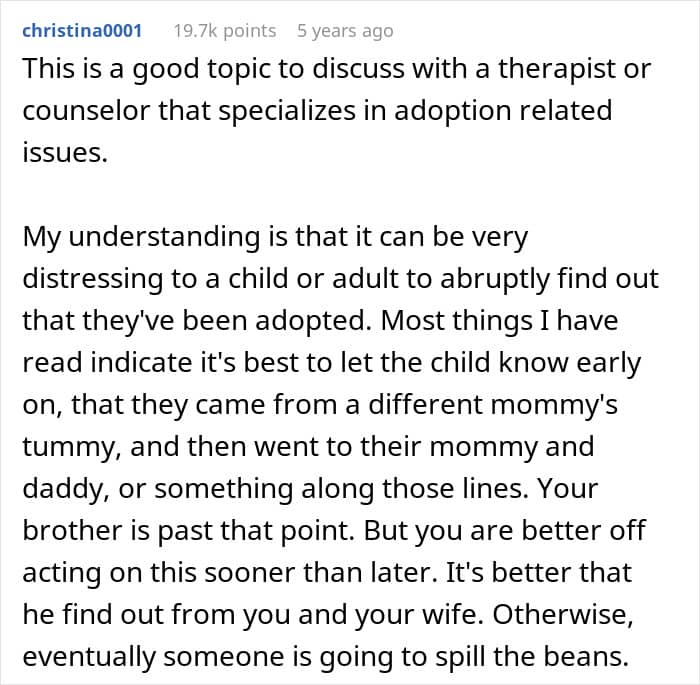

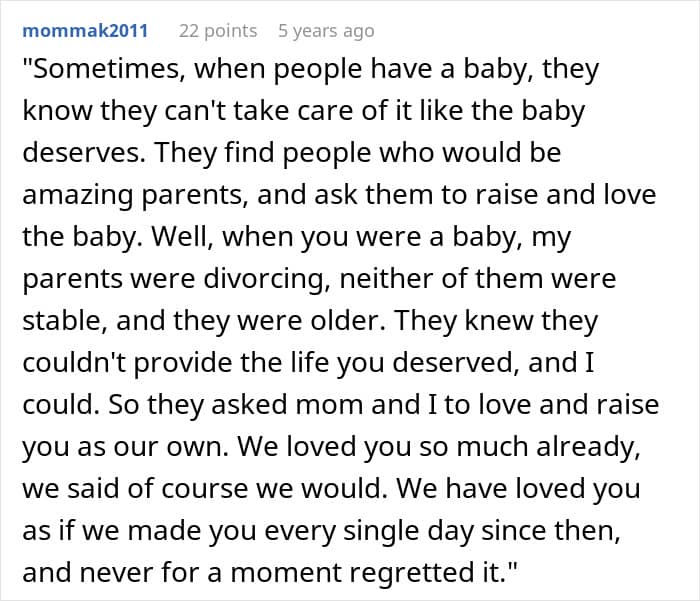

A few believed his family was too harsh on him
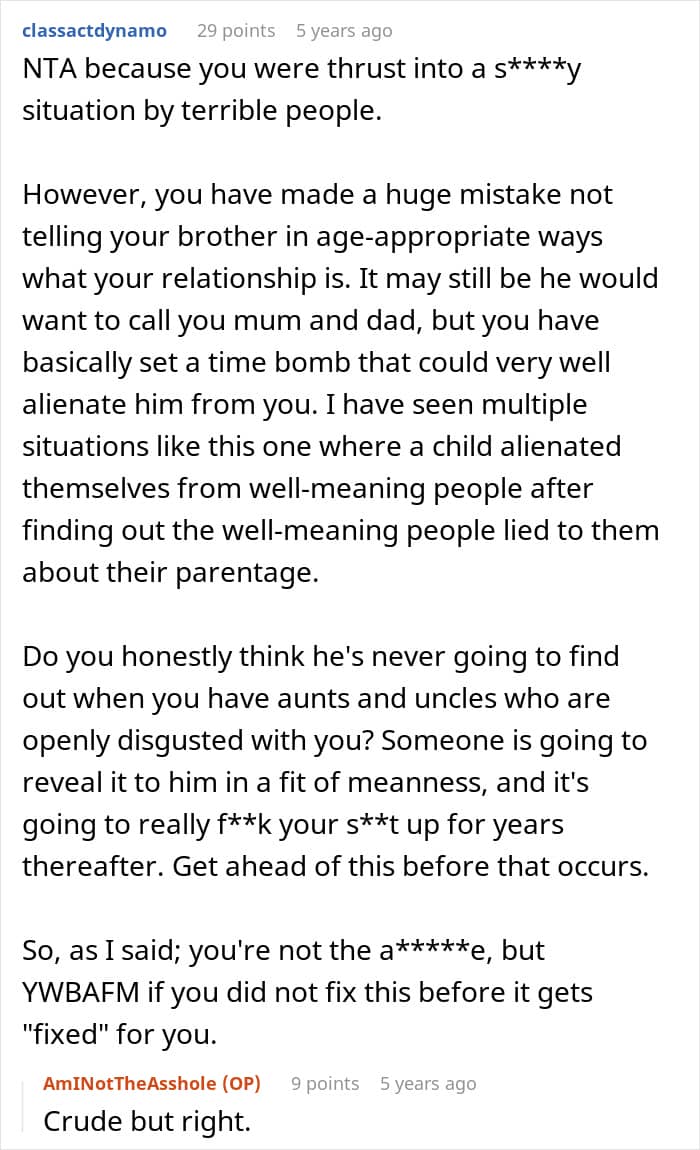
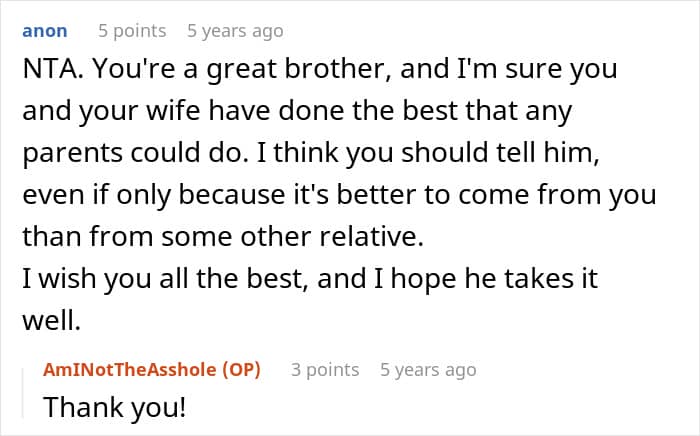

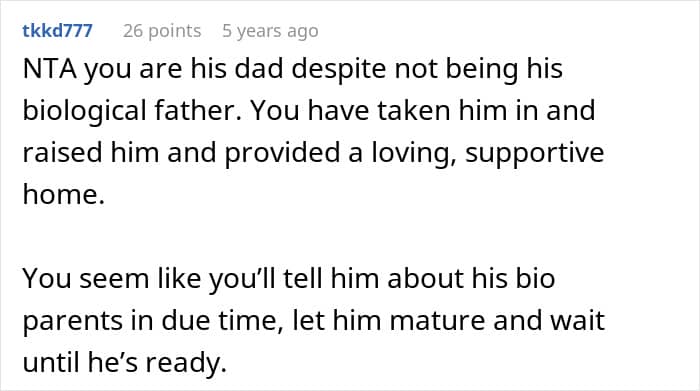


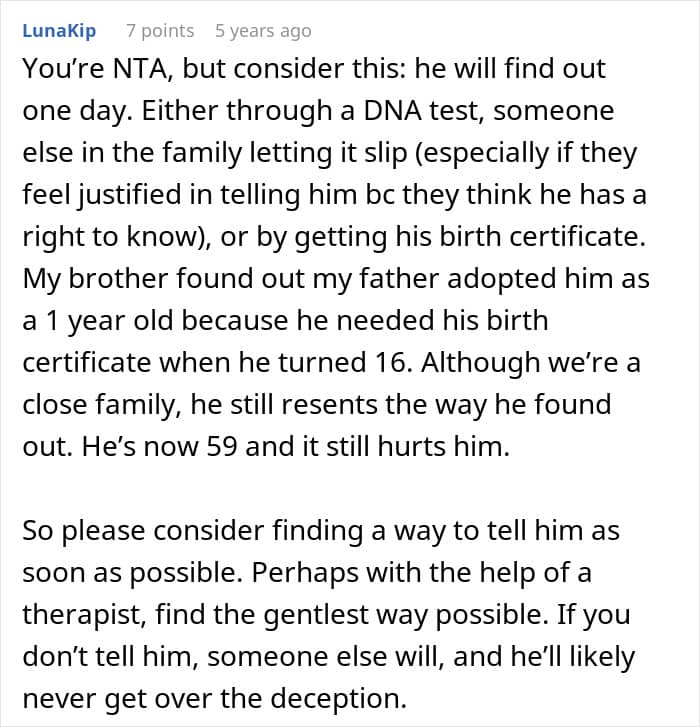
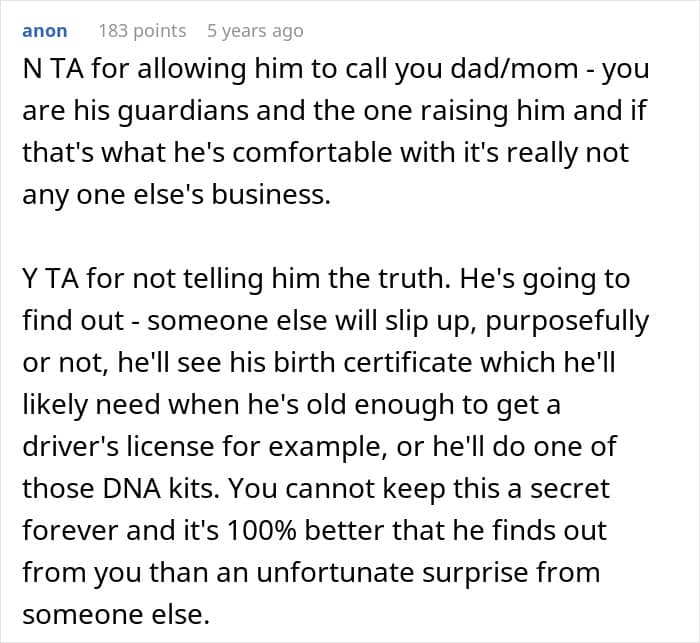
Some thought he needed to tell his brother sooner
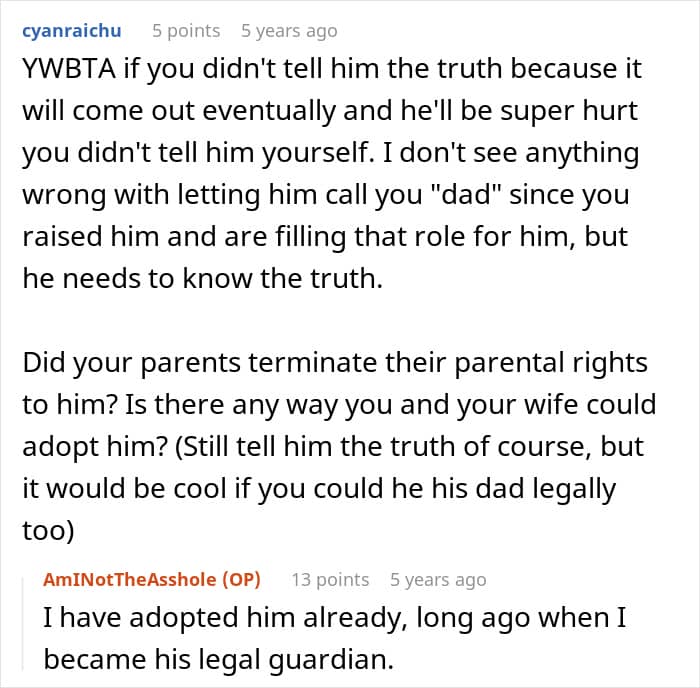
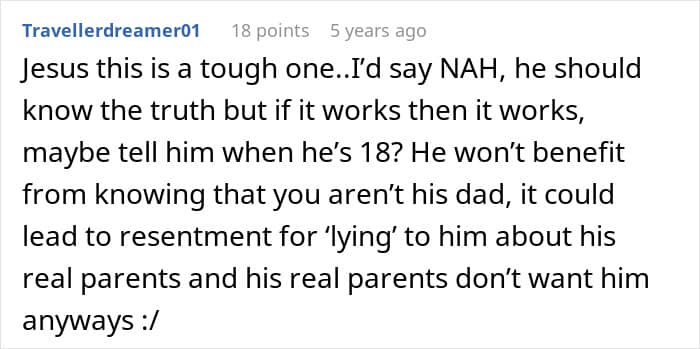

Later, he shared what they decided to do

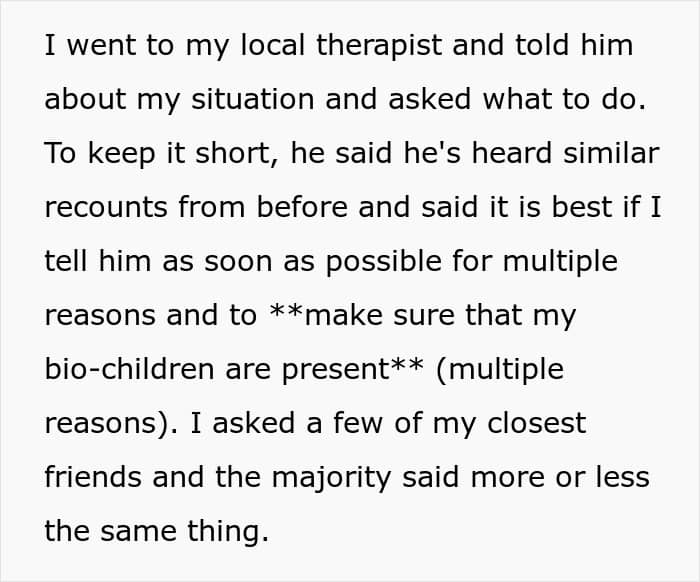
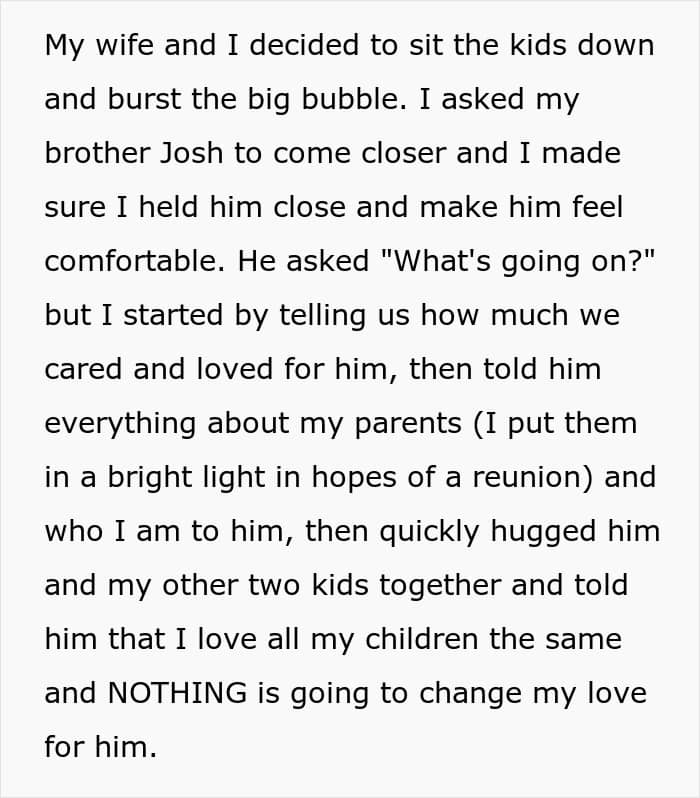
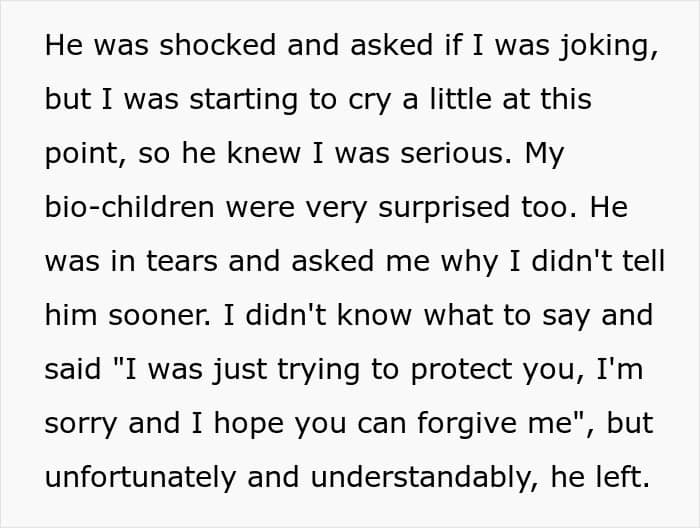

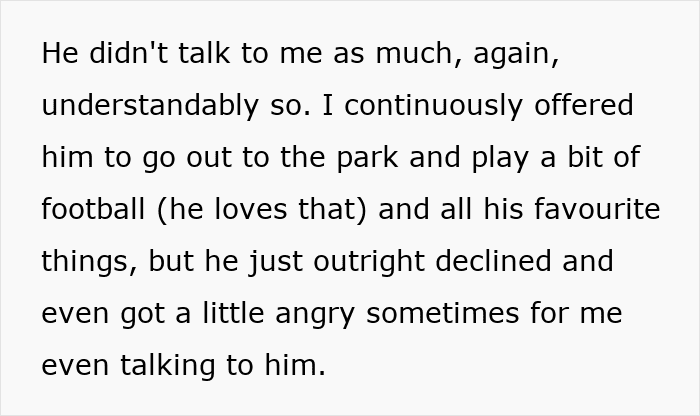
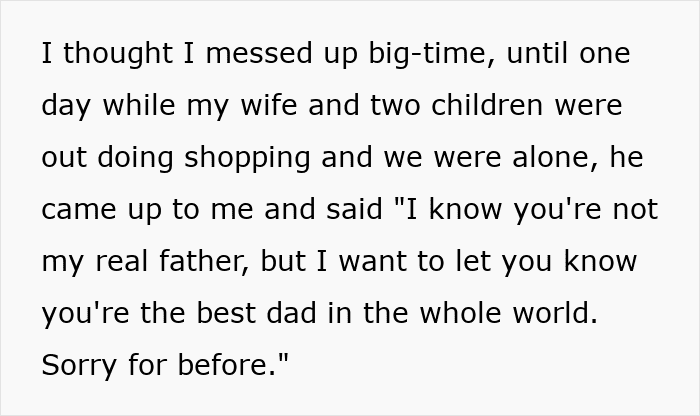
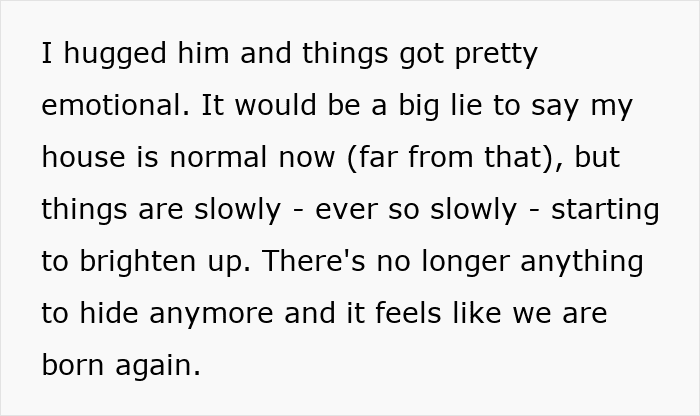

Readers were happy things worked out

